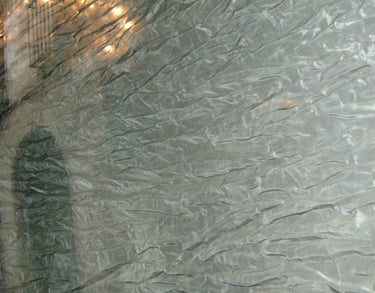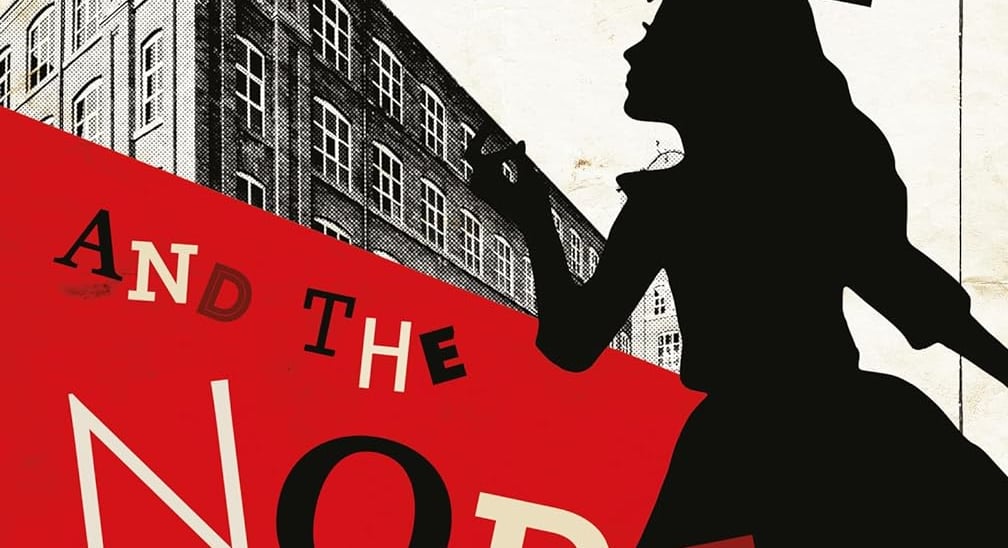Review of Neither Here Nor There by Hannah Stone


Neither Here nor There, SurVision Books, 2024. ISBN 978-1912963478.
As she has gravitated increasingly towards writing prose poetry over lineated verse, Caldwell’s work has become increasingly surreal. Given the sustained quality of her writing, it is no surprise that Neither Here nor There was a James Tate Poetry Prize winner in 2023, a competition established to promote surreal poetry. This slim volume from innovative press SurVision is an engaging read.
There are some echoes of previous collections; the titular protagonist of her 2020 Valley Press Collection Alice and the North makes a cameo appearance, finding ‘life’s heat and joy’ and perpetual motion in ‘GlassBlower.’ And, as in much of her work to date, the physical and emotional landscape of the Pennines, its flora and fauna, run through the poems like the warp of a loom, offering stability to the weft of apparently random and diverse themes. The light over Saddleworth Moor is ‘forever rainsoaked’ (‘Red Tulips I’); time is measured by migrating birds: ‘here on the moors the curlews have returned; they’re nesting in the field above Top Brink.’ (Blue). Although the title of the collection plays on words associated metaphorically with location, there is for me (as a lover of similar landscapes) a very strong sense of place sustained in these poems, a real conviction that we are ‘here’, with the poet, looking through her eyes.
Lockdown makes an occasional appearance, as a manifestation of combined isolation and despair which is one of the emotional threads in these poems. In simple metaphors, Caldwell captures her own sense of the melancholy and its mirror image, the ‘thing with feathers’ (citing Emily Dickinson, in ‘Late Snow’). ‘Fallen’ and ‘Philomela’ bring in voices from familiar myths, subverted to displace expected narrative flow in lieu of immediate impressions, couched in mouth-watering language: ‘I thought of my father. He was one of life’s dreamers, one of Larkin’s lecturers, lispers, Losels, loblolly men.’ (‘Fallen’). Interspersed with the griefs and losses are outbursts of sheer exuberance: ‘For fuck’s sake, I am wide awake and kicking the start of the year into the long grass where it belongs’ (‘Not I’), not to mention the ‘nimble and giddy’ words that ‘wore dancing slippers made of silk’ when ‘the moon was up’ (‘Dancing Slippers’).
This collection is striking for its straightforward use of simple metaphor rather than simile, covering the whole gamut of sensory, emotional, and intellectual experiences; ‘Now is a copper saucepan, coated with olive oil, garlic just about to burn’ (‘Now’); ‘Today melody is a sparrowhawk, gliding above the heather.’ (Live Streaming Friday’). ‘For a while, Love was a ship marooned in ice.’(‘Late Snow’); ‘I am an egg with a shell so thin I could crack open under the kindest touch’ (‘The Shut Drawer’). And in ‘Seabed’: ‘Down here, your silence is a draft of cold Guinness, soothing a heart parched of tenderness or love.’ None of these conjure up obscure visions, but Caldwell manages to endow them with a sharp focus that invites the reader to look afresh at situations they thought they knew.
In ‘Love Poem’ the fauna image plays out in a more sustained way: ‘Your words at bats at night … they’re cave dwellers … roost for a while and fall head over heels when introduced to mine in late September.’ The lovers’ discourse is ‘sonic chatter’, a neat way of capturing the universality and particularity of romantic connection, but the surreal elements lift this above a conventional love poem; it is allusive and enticing rather than explicit.
In these perfectly crafted, always surprising, poems, Caldwell creates a sense of an interior world that avoids being self-reflective, but – rather shyly – invites you in.
Hannah Stone is the author of Lodestone (Stairwell Books, 2016), Missing Miles (Indigo Dreams Publishing, 2017), Swn y Morloi (Maytree Press, 2019) and several collaborations, including Fit to Bust with Pamela Scobie (Runcible Spoon, 2020). She convenes the poets/composers forum for Leeds Leider, curates Nowt but Verse for Leeds Library, is poet theologian in Virtual Residence for Leeds Church Institute and editor of the literary journal Dream Catcher
Review of Alice and the North by Maggie Butt


Alice and the North, Valley Press, 2020
Maggie Butt, London Grip Magazine Jan 2021
https://londongrip.co.uk/2021/01/london-grip-poetry-review-anne-caldwell/
This superb collection of prose-poems seems almost designed to demonstrate the versatility, strength and power of the form. Here is a poet absolutely at one with her form, confidently adapting it to her needs and subtly moulding what she wants to say to the shape of the poem.
The delicious premise of this sequence is that it is a ‘love-song to the north’ (of England) in which a new fictional Alice grows up journeying through post-industrial landscapes, flaming moorland and the ever-present weather. ‘Alice’s north is all pound-shops and chip-barms… fragile uplands and flooding and heather… a rare slipper orchid.’ Anne give Alice the rich cadences of the north’s everyday speech, idiom and dialect, ‘Her wildness of language is gritstone and millstone.’ She revels in the place-names and characters of the north, ‘Aunt Bertha is a walnut, dressed in jet and lace.’
The poems are rich with all the senses, both close-up ‘Alice has a den in the bottom of the wardrobe which smells of plimsolls,’ and wide-angle ‘Alice sketches the scent of heather burning, the echo of clogs, coal and the black-faced ewes snaking through the gaps in Hadrian’s wall.’
These poems are rich with imagery, ‘since her father’s death her family house is eiderdowned with grief,’ ‘rookeries chattering and their offspring plump with love,’ ‘peppermint tea, pale as longing,’ ‘clapperboard villages clung to the coast like whelks,’ ‘birch trees shimmering like unspoken words,’ ‘ an arpeggio of windblown nests and broken eggs,’ ‘prejudice cockroaching across the floors,’ ‘wind solid as stone walls.’
Alice herself shape-shifts, briefly becomes a puma ‘padding up Corporation Street, her pelt gleaming, soaked by days of rain’ and the landscape itself, ‘a giantess, lying across Yorkshire, her legs bent in sleep.’ But she often lives alone, ‘Her rooms are best at holding old maps, fishbones, dead conversations, sheep skulls and the soft padding of stray cats.’ She experiences love, and loses love, ‘Now he’s gone. Alice is all mud and shingle. She’s Bridlington in winter.’
There is deep humanity, moving observation and a wicked sense of humour in these poems. They encompass life and death, ‘Alice can sense them all, pulling away from the shadows of their loved ones… The dead are walking backwards, skirting through the woods towards the Calder river.’ This sequence moves effortlessly from the interior of the psyche to the exterior of the countryside, ‘the idea of a room becomes a moor; intimacy is as wide as a meadow.’
In these locked-down days Anne Caldwell has whirled me away on a guided tour of the north, allowing me to take my time and see with new eyes, revealing it as a wonderland indeed. This collection has also led me to think how honest – how northern – the prose poem is, eschewing the knowingness of fancy line breaks, rhythm and rhyme to reveal the rugged poetry of its own self, its vibrant word choices, shimmering imagery and the movement which reveals meaning within its own unpretentious frame.
